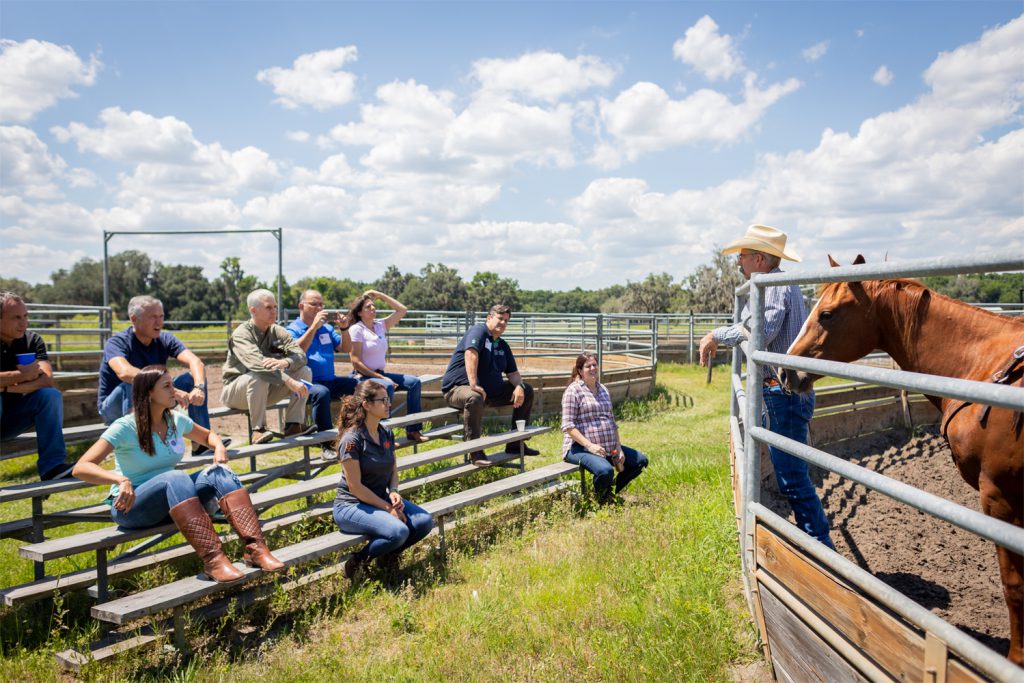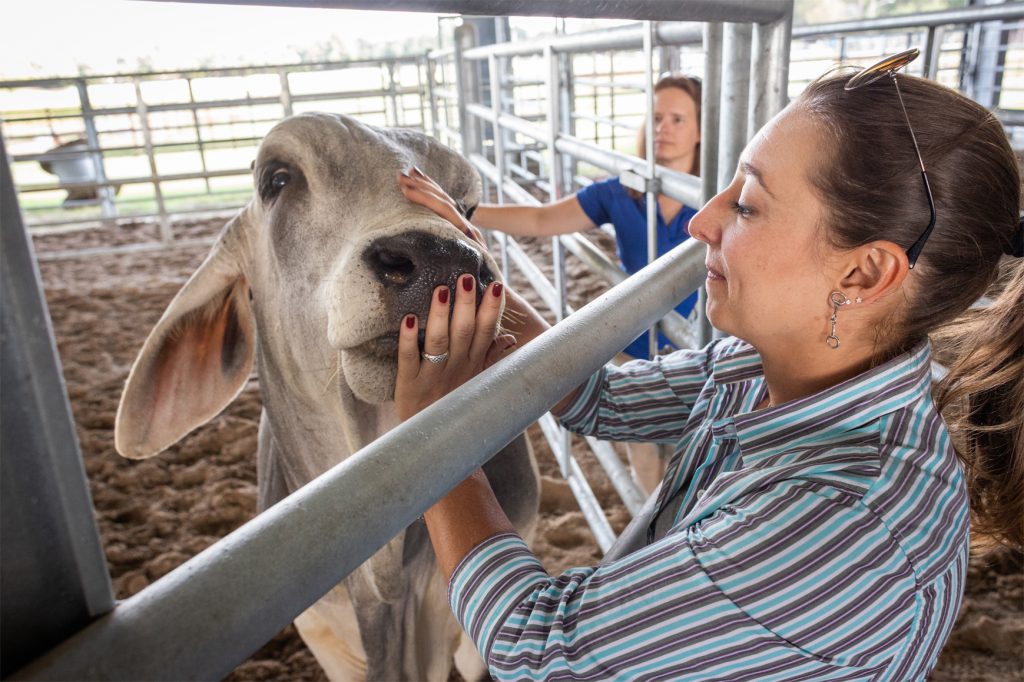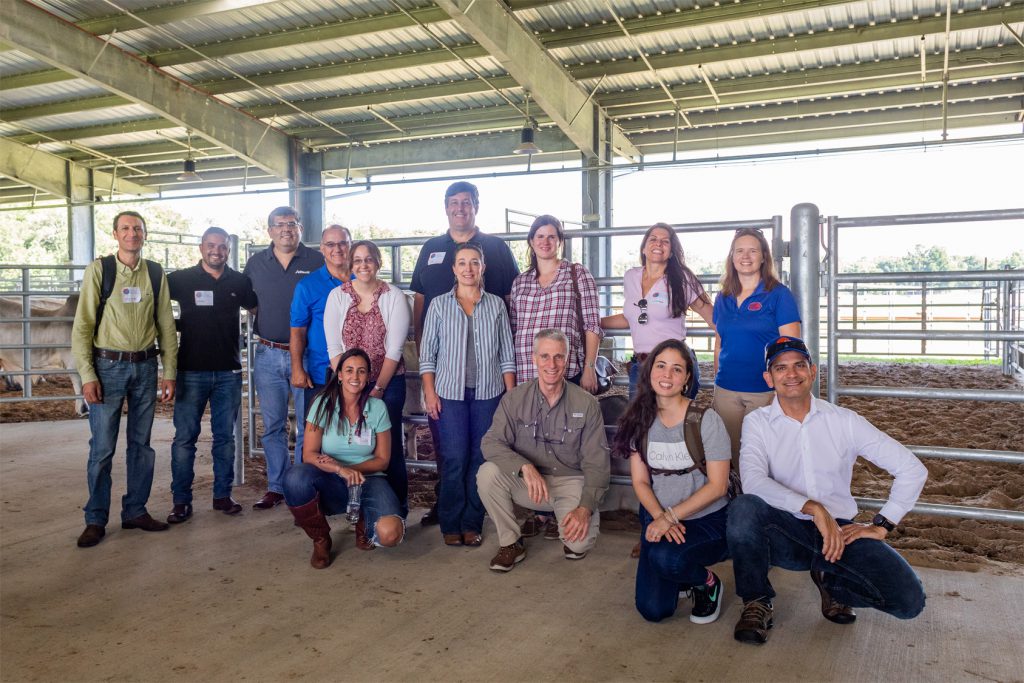GAINESVILLE, Fla. — How can we improve the health and welfare of horses and cattle?
That will be a big question on the minds of the veterinarians, animal scientists and livestock breeders from the United States and Brazil at the first International Livestock Symposium at the University of Florida. The symposium is set for May 14 and 15 at the UF Horse Teaching Unit, located at 1934 SW 63rd Avenue, Gainesville, FL 32608.
“The purpose of this event is to share information and explore opportunities for collaboration with researchers and livestock professionals from Brazil. This program represents an initial step towards supporting future research, student training, and outreach to our respective and collective equine and livestock industries,” said Carissa Wickens, assistant professor of animal sciences and state Extension horse specialist with the UF Institute of Food and Agricultural Sciences.

The U.S. and Brazil are also home to large numbers of the world’s horses and cattle, respectively, so the collaboration between the two can have significant impacts on the outlook for livestock, Wickens said.
“During the symposium, our UF team will talk about current advancements in nutrition, genetics, behavior, physiology and health in order to solve problems related to animal health and well-being,” she said. “Hopefully, this sharing of information will lead to brainstorming about the current issues and help with development or improvement of current methods to solve those problems.”
The UF team also includes:
- Matt Hersom, associate professor, Extension beef cattle specialist
- Lori Warren, associate professor, equine nutritionist
- Saundra TenBroeck, associate professor, state Extension horse specialist
- Joel McQuagge, instructor
- Sally DeNotta, clinical assistant professor, equine veterinary Extension specialist
- Mario Binelli, assistant professor, beef cattle reproduction
Brazilian attendees include researchers and equine industry professionals, as well as representatives from GUABI, the Brazilian division of Alltech.

“The US and Brazil are ranked first and fourth in terms of the size of their respective horse populations, in total accounting for 15 million of the approximately 60 million horses world-wide,” said Samantha Brooks, associate professor of equine physiology and one of the symposium organizers. “Our research program focuses on the use of genomic tools to improve the health and welfare of our horse populations, which contribute significantly to our cultural identity and livestock economies.”
In Florida, which at nearly 400,000 horses has the third largest horse population in the country, the horse industry adds an estimated $6.8 billion to the economy. The beef and dairy cattle industries in Florida generate a combined impact of more than $1.3 billion annually.

“Proper management of livestock, especially of horse and cattle operations, is crucial for the years to come, to assure sustainability of the industries which hold historic and valued positions in both countries,” Wickens said.
For more information about the symposium, please contact Samantha Brooks at samantha.brooks@ufl.edu or Carissa Wickens at cwickens@ufl.edu.
By: Samantha Grenrock, 352-294-3307 (office), 949-735-1076 (cell), grenrosa@ufl.edu
-30-
The mission of the University of Florida Institute of Food and Agricultural Sciences is to develop knowledge relevant to agricultural, human and natural resources and to make that knowledge available to sustain and enhance the quality of human life. With more than a dozen research facilities, 67 county Extension offices, and award-winning students and faculty in the UF College of Agricultural and Life Sciences, UF/IFAS works to bring science-based solutions to the state’s agricultural and natural resources industries, and all Florida residents. Visit the UF/IFAS web site at ifas.ufl.edu and follow us on social media at @UF_IFAS.
 0
0
